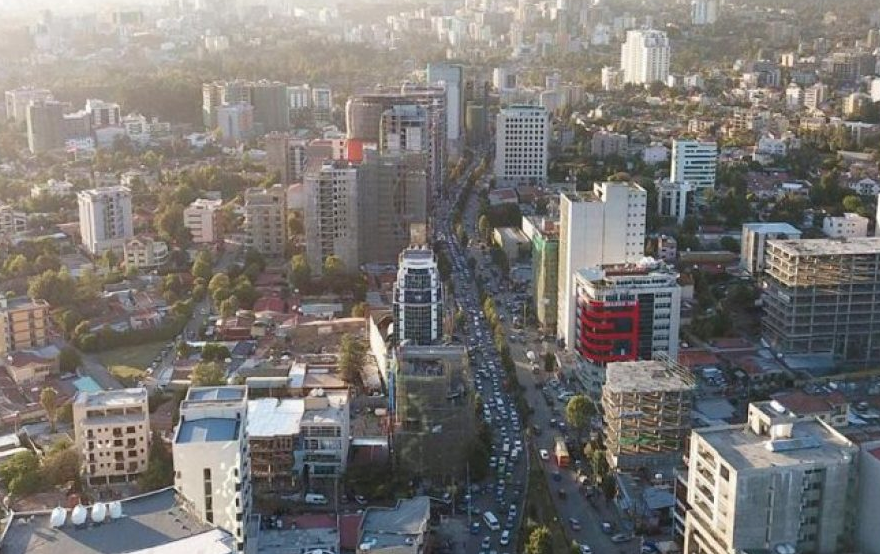
May 18 , 2019
By Eden Sahle
Europe is a continent imbued with history, culture and magnificent architecture. It is a brand all by itself, a dazzling experience for anyone willing to visit.
In visiting other countries though, what is of note is how little people know about Ethiopia. Their knowledge of the nation does not exceed much more than its name and perhaps its geographic location.
Ethiopia is poorly represented around the world. Most people do not know anything about Ethiopia. Worse, those who do only know of the negatives. For decades, the image that has been embedded in the eyes of the world about us is of a nation that is backward, poor or at war.
Decades of weak planning and misguided economic development strategies has meant a nation that cannot depend on a skilled workforce. Instead, we have been looking for handouts, either from Western development partners or our own diaspora community overseas, most of which subsist on jobs that they would have looked down on in Ethiopia.
This dependent mentality has long infected leaders who are busy asking for aid and funds to support a fragile economy. Like much of the public, their view is of a country that is impossible to fix. The notion of a good day's work is barely existent. We have failed to grasp the concept that every developed country has had dynamic economic strategies and sacrifices to make a better nation for future generations.
Ethiopian embassies are not doing much to change the image of this country through the access they have to public figures and leaders overseas. Annual event activities in Ethiopian embassies are nothing more than ineffective promotion campaigns and do very little to build an Ethiopian brand.
Certainly, building a nation's good name is not simple. But conveying a good image locally and to the rest of the world should be one of the priorities of the government. The nation must take advantage of globalisation, in which communication, opportunity and culture are used to generate sustainable economic benefits. It is a powerful method that can allow Ethiopia to be identified in the global social and economic arena.
The government will go a long way if it can craft public diplomacy to inform and to reach citizens and companies. This would create the organisational framework in which our diplomats can be led and measured by.
A positive image cannot be crafted unless institutions and cultures are promoted, as well as national goals and current policies for sustainable economic development. Instead of working hard to be eligible to acquire aid and funds from developed countries, international relations must be directed toward establishing a good image and promoting ideals for non-nationals to take an interest in.
Ethiopia can be represented by the culturally diversified nation with untapped opportunities it has. The ever-increasing development of social media means that the infrastructure is already there - what is missing is the creativity to use this to our advantage. Public diplomacy is directly related to effective public relations at the government level, where the image of nations is successfully communicated on a brand. Hiring local and international firms can go a long way in popularising branding.
Ethiopia is a poor country, but this is not the only defining characteristic it has. It is also a tragedy that this is what the world thinks of it. Images of hunger and famine have lingered ever since the 1980s, while the successes since that moment and culture of the nation have failed to garner as much attention. A constructive image that can help the world develop an updated image of the country is overdue. The initiative should come from the government by developing a policy and putting in leadership skilled people that know how to navigate the challenges.
PUBLISHED ON
May 18,2019 [ VOL
20 , NO
994]

Featured | Sep 09,2019

Sunday with Eden | Jul 13,2019

Viewpoints | Nov 02,2019

Fortune News | Jan 05,2020

Radar | Feb 06,2021

My Opinion | 131658 Views | Aug 14,2021

My Opinion | 128022 Views | Aug 21,2021

My Opinion | 125985 Views | Sep 10,2021

My Opinion | 123609 Views | Aug 07,2021

Dec 22 , 2024 . By TIZITA SHEWAFERAW
Charged with transforming colossal state-owned enterprises into modern and competitiv...

Aug 18 , 2024 . By AKSAH ITALO
Although predictable Yonas Zerihun's job in the ride-hailing service is not immune to...

Jul 28 , 2024 . By TIZITA SHEWAFERAW
Unhabitual, perhaps too many, Samuel Gebreyohannes, 38, used to occasionally enjoy a couple of beers at breakfast. However, he recently swit...

Jul 13 , 2024 . By AKSAH ITALO
Investors who rely on tractors, trucks, and field vehicles for commuting, transporting commodities, and f...

Jun 28 , 2025
Meseret Damtie, the assertive auditor general, has never been shy about naming names...

Jun 21 , 2025
A well-worn adage says, “Budget is not destiny, but it is direction.” Examining t...

Jun 14 , 2025
Yet again, the Horn of Africa is bracing for trouble. A region already frayed by wars...

Jun 7 , 2025
Few promises shine brighter in Addis Abeba than the pledge of a roof for every family...

Jun 29 , 2025
Addis Abeba's first rains have coincided with a sweeping rise in private school tuition, prompting the city's education...

Jun 29 , 2025 . By BEZAWIT HULUAGER
Central Bank Governor Mamo Mihretu claimed a bold reconfiguration of monetary policy...

Jun 29 , 2025 . By BEZAWIT HULUAGER
The federal government is betting on a sweeping overhaul of the driver licensing regi...

Jun 29 , 2025 . By NAHOM AYELE
Gadaa Bank has listed 1.2 million shares on the Ethiopian Securities Exchange (ESX),...